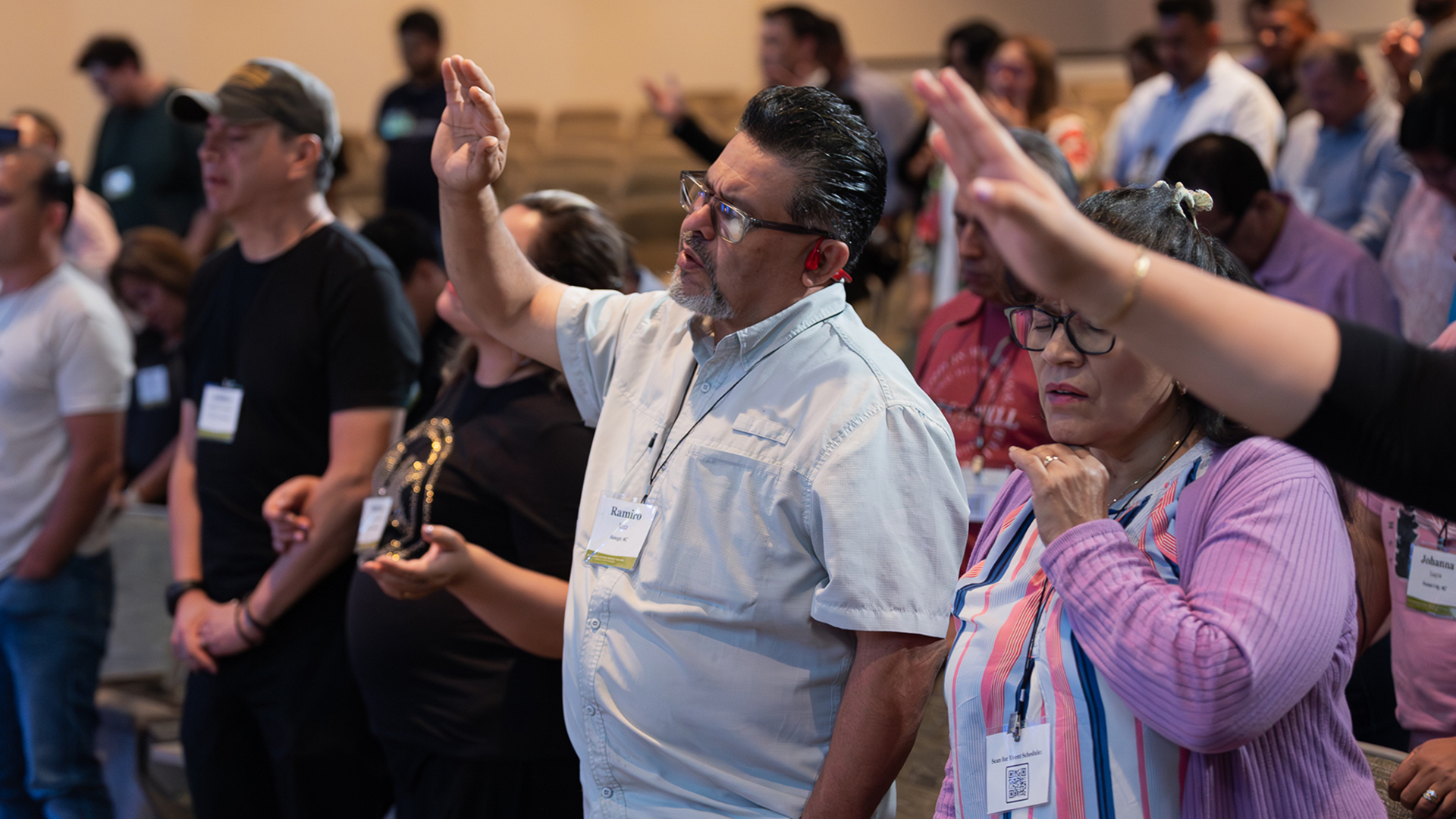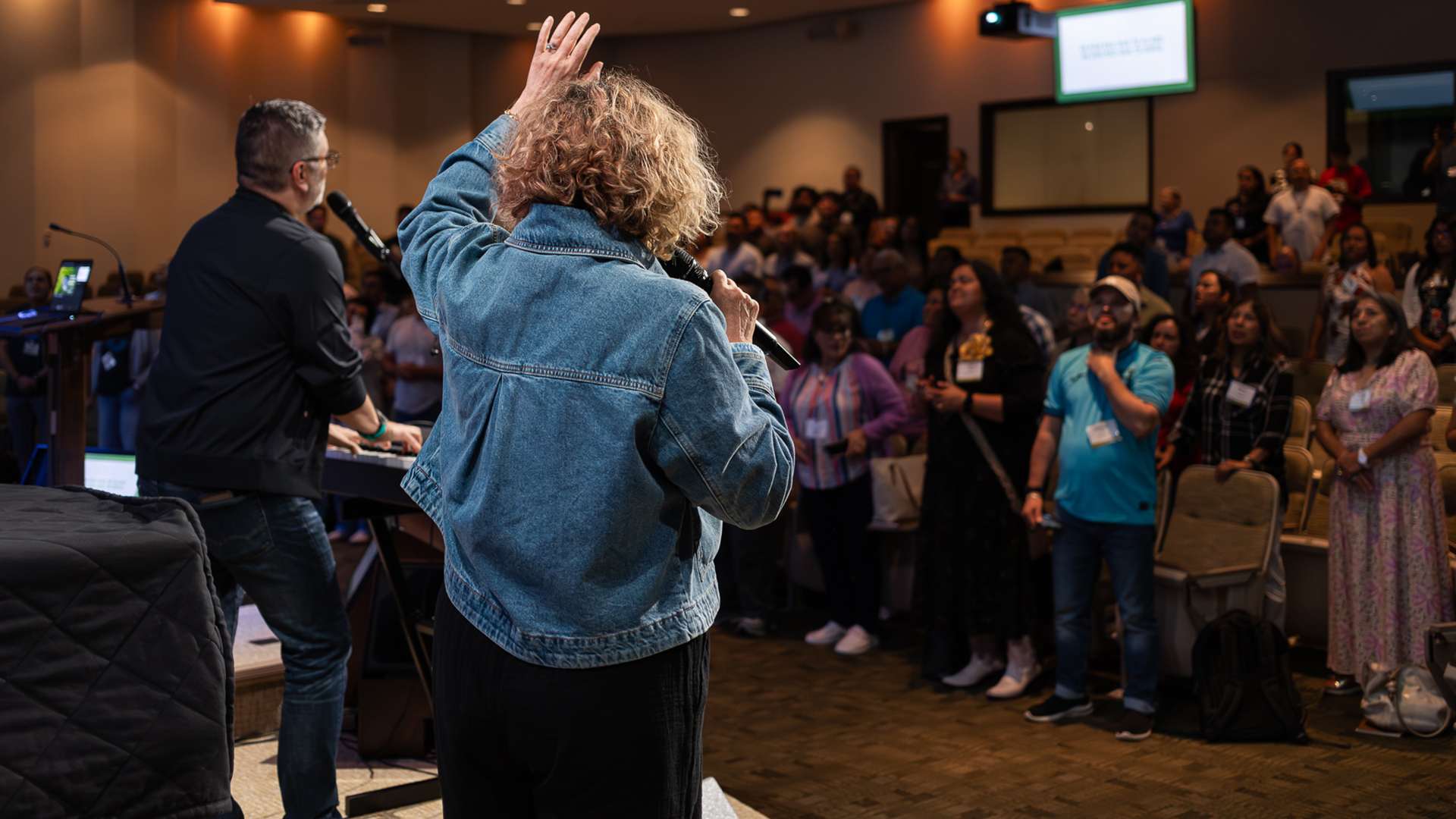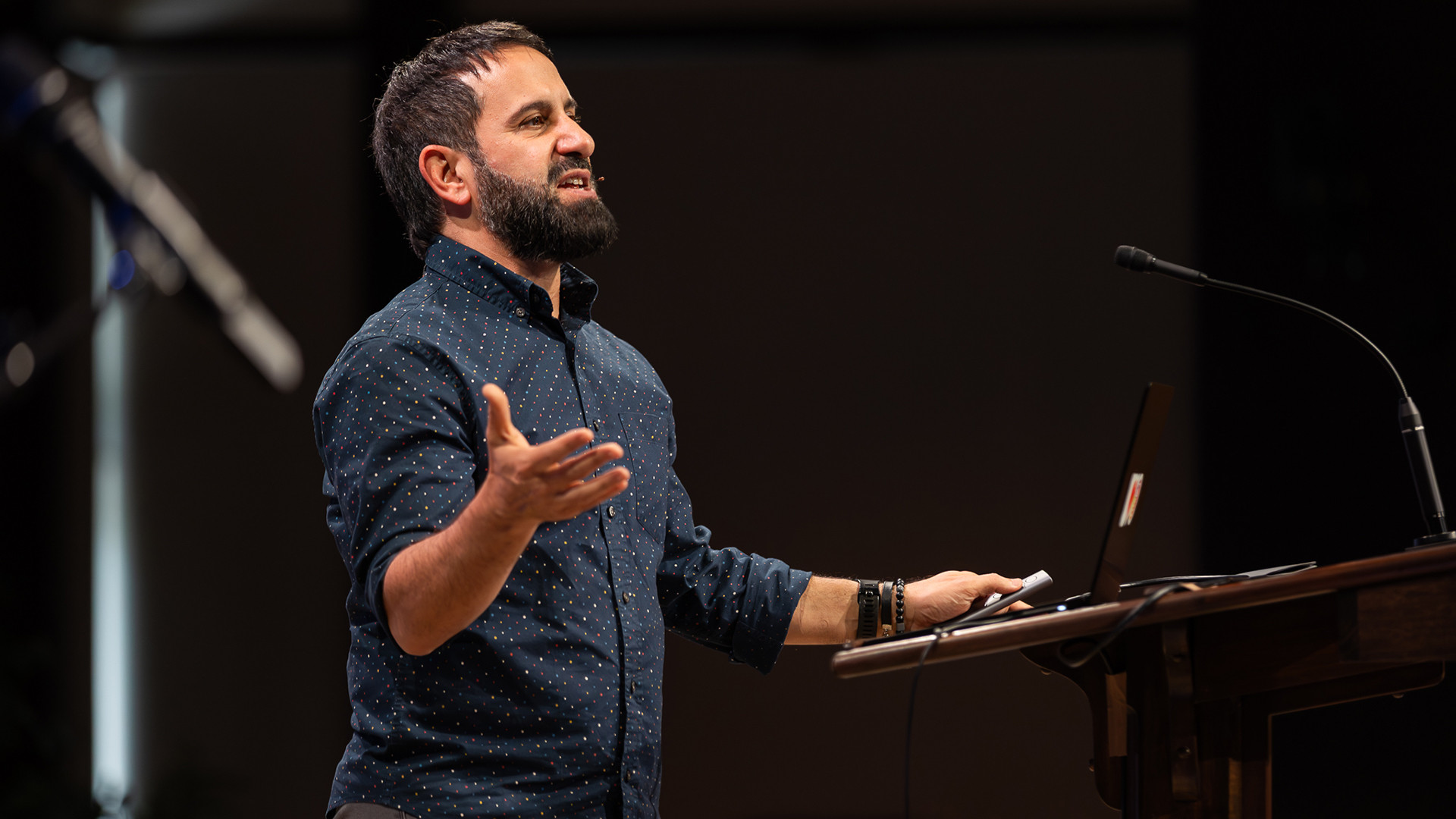
Being a Hispanic pastor in the United States can be lonely, several Spanish-speaking pastors shared last week at the Billy Graham Training Centre at The Cove. Leading their congregations can feel overwhelming due to a lack of resources and training opportunities.
Last weekend, The Cove hosted more than 130 pastors and spouses for its third all-Spanish seminar in response to this need. The retreat emphasized the Christian leadership model the Apostle Paul shared in the book of Philippians.
Featuring Argentine ministry leader Lucas Leys and Mexican pastor Fermín IV, the seminar highlighted four examples of godly leadership from a letter to the church in Philippi.
But whoever would be great among you must be your servant, and whoever would be first among you must be your slave, even as the Son of Man came not to be served but to serve, and to give his life as a ransom for many.—Matthew 20:26–28, ESV
1. The example of Jesus: Philippians 2:1–11
The Apostle Paul introduces this chapter by saying that all leadership must first imitate Christ, who is our example of service and sacrifice.
“This is totally contrary to what the world teaches,” said Fermín IV. “The world teaches us to go upward, to step over others to get higher. Where does this come from? From Satan, of course. He wanted to be equal to God, and with that he tempted Adam and Eve: ‘You will be like God, knowing good and evil.’”
Jesus, on the other hand, did not think of Himself but of us. He was willing to come down to Earth in the form of a man and ultimately lay down His own life to save us from our sins.
“Jesus, knowing where He came from and where He was going, became obedient unto death,” said Fermín IV. “When you understand who you are in Christ, then you can do everything not for strife or vainglory, but thinking of others.”

2. The example of Paul: Philippians 2:12–18
The Apostle Paul often encouraged church leaders to model discipline and obedience for their people.
“We obey God not to earn His blessing and grace, but because we have already received His grace,” explained Lucas Leys. “Christianity is the only religion in which we don’t have to change [ourselves] to get closer to God. We have to draw near to God so that He can change us.”
Leys explained that when we understand what Jesus did for us on the cross, we can then joyfully obey God because of our gratitude for Him.
In Philippians, Paul calls believers to foster unity, avoid strife, and live our lives in such a way that we are a light in a dark world, guiding others to Christ.
“Exemplary leadership like Paul’s is sustained by personal discipline, blameless character, and joyful sacrifice,” Leys explained. “By living these principles, we influence our teams to follow in the same direction.”

3. The example of Timothy: Philippians 2:19–24
Timothy worked alongside Paul in proclaiming the Gospel of Jesus Christ, and he was so faithful in his ministry that Paul said he served “as a son serves his father” (v. 22, ESV).
But the Bible does not hesitate to reveal Timothy’s human side. It speaks of his tears (2 Timothy 1:4), his health problems (1 Timothy 5:23), and how he was encouraged to be brave when he felt timid (2 Timothy 1:7).
Timothy struggled with many of the same weaknesses we have, but he still set an example of care and compassion for us to follow.
“Timothy was interested in others,” Fermin IV said. “Paul testifies that Timothy was not seeking his own, but that which is Christ’s. Like Jesus, Timothy was seeking only to glorify God.”
Fermín IV invited the audience to be leaders like Timothy: “Serve without drawing attention to yourself and without seeking applause. Serve even when others don’t notice it.”
4. The example of Epaphroditus: Philippians 2:25–30
In the final part of the chapter, Paul goes on to talk about Epaphroditus, whom he describes as “my brother and fellow worker and fellow soldier” (v. 25, ESV).
“Epaphroditus was the link between Paul’s service to the Philippians and the Philippians’ service to Paul,” explained Leys. “He is another example of selfless service because his sacrifice was extreme.”
In fact, Epaphroditus was on the verge of dying “for the work of Christ” (v. 30, ESV).
“His leadership underscores that Christian leadership often demands sacrificing everything for the Gospel,” said Leys.
Epaphroditus’ near-death experience highlights that the central motivation of godly leadership is the glory of Christ and the advancement of His kingdom, not the personal pursuit of fame.


